An insider view on studying English Literature with Creative Writing at Surrey
Luana Vasconcelos is in her third year of studying an English Literature with Creative Writing degree. Here she reveals what it’s like, giving her unalloyed views on the modules on offer, how students are assessed, what the student work-life balance is, and what the career options are after graduation.

Choosing what you’ll study at university is a difficult decision, but I believe that learning all you can is the first step towards making an informed choice. Let me try to break English Literature with Creative Writing down for you, through the spectrum of my experience at Surrey.
Personally, I wouldn’t have chosen any other course because I just enjoy my student life so much. Lessons and seminars are always interesting and if you happen to miss one for whatever reason, this doesn’t significantly affect your final grade. I get to complete my studies alongside work, volunteering and socialisation without feeling overwhelmed like people on other courses often do.
What is the course structure like?
The structure of the course varies a bit depending on which year you are on and whether you are signed up for just English Literature or with Creative Writing. What doesn’t change though is that you can take about four modules for each of the two semesters.
You can check out the full structure of the course here, but I will give an overview of the main compulsory modules you will have in years 1 and 2 and my own experience. (I’ve put my comments in brackets, so check them out!)
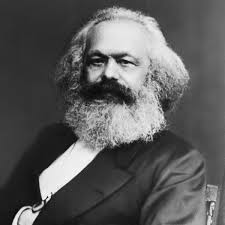
Year 1
Theories of Reading I and II: you will learn about all the different ways of analysing a text through theoretical perspectives such as Marxism, Feminism, Structuralism and Psychoanalysis. (Very useful for year 2 modules. Be prepared to read Marx, Freud, Butler and Saussure.)
History of English Literature I and II: you will explore the development of literary texts throughout many periods, ranging from medieval literature until the 21st century. (If you’re a history nerd, this is the right module for you.)
Introduction to Creative Writing: (compulsory for Creative Writing students and optional for just English Lit.) You will learn about different types of poetry, narrative styles and short stories. You will get a chance to workshop your piece throughout the semester and get feedback from staff and your peers. (It was a very productive module as the seminar leader suggested I do a 30-day poetry challenge which resulted in many tankas/haikus!)
Thinking like a Writer: (module is compulsory for Creative Writing students and optional for just English Lit.) You will learn about writing play scripts and movie screenplays, how to avoid or subvert clichés, what narrative theory includes and what famous writers advise when writing. (Quite a fun module as all Creative Writing ones are. I especially enjoyed learning about scripts/screenplays!)
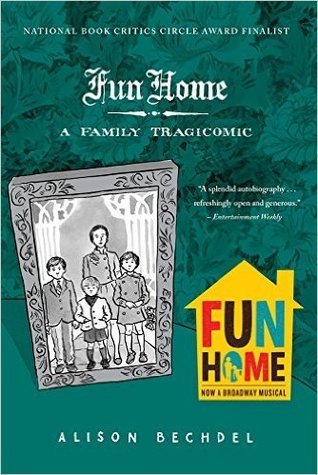
Year 2
Contemporary Literature: Postcolonial Fictions: you will explore diverse texts written in English but set in countries like Nigeria, South Africa and US. You will also learn crucial theories like Afropolitanism, decoloniality, double consciousness and self-orientalism. (An amazing module that decolonises the curriculum and allows marginalised voices to be heard. Also includes masterpieces like Black Panther and Americanah.)
Contemporary Literature: Gender and Sexuality: you will explore different texts which represent gender and sexuality issues and learn how to analyse them using theories like compulsory heterosexuality, gender performativity, the charmed circle, queer studies and transgender studies. (An enjoyable and thought-provoking module that includes inspiring texts like Brokeback Mountain and Fun Home.)
Elements of Narrative: (compulsory for Creative Writing students and optional for just English Lit.) You will learn about different aspects of writing a story, such as establishing character, handling time and setting the scene. (After learning about different modes of writing, it was useful to look at structuring a story and how to make the little things work in your favour.)
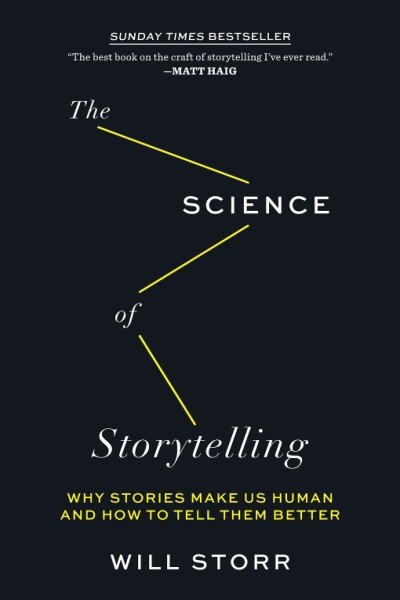
Contemporary Storytelling: (compulsory for Creative Writing students and optional for just English Lit.) You will explore texts written in the 20th/21st century and learn about narrative poetry, speculative fiction, horror, and how to write ‘the other’. (This has been amazing so far and inspired me to write outside of my comfort-zone.)
Year 3
All the modules will be optional. Here are some examples of what you might be studying:
- Children’s Literature
- Writing Animation
- Screenwriting
- Writing Gaming
- From Novel to Film, and
- Approaches to Film Genre.
How are students assessed on this course at Surrey?
There can be many types of assessments, but one advantage of doing English Literature is that exams are rare because there are much better options for students to be tested.
For most of my English Literature modules, assessments will include one final essay, which can be between 1,500 and 2,500 words, due in the last week of term – so either January or late May/early June. Creative Writing assessments are quite free as you can write whatever you want, but you must do a critical analysis explaining what you did.
Sometimes there are earlier assessments which tend to be shorter, like 500 words close reading exercises or essay plans. For two of my modules, I have also had to prepare presentations and, if you’re taking TEFL in year 2, you will be asked to prepare a lesson-plan then perform a teaching practice.
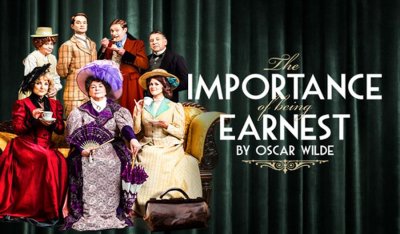
What are the optional modules offered?
Year 1
Understanding Stage and Screen/Poetry/the Novel: you will be taking one of more of these modules which explore how plays are adapted into movies, the different types of poetry or how a novel is written. (I did stage and screen, was cool to explore differences between scripts and screenplays.)
Global Literatures: this is a new module which introduces you to a range of Anglophone and non-Anglophone texts so that you can reflect on the value and challenges of studying literature today from a global, multilingual, and comparative perspective.

Year 2
Modernism: you will learn about all the stylistic and thematic changes that occurred in the first half of the 20th century and explore some difficult yet intriguing texts. (This was quite an exciting module and I enjoyed learning about the effects of war in literature.)
Transmedia Narratives: a brand new module that explores stories which are told through multiple mediums like Harry Potter, Star Wars and the Marvel Universe. You will learn about theories regarding what is transmedia and the different types such as tv, social media, gaming and spaces. (Honestly, the best module this university has ever created! Always exciting and I got to write an essay about my favourite anime for the first assignment.)
Introduction to TEFL: you will learn the basic principles of teaching English as a foreign language, such as teaching the four main skills, how to use the PPP [Presentation, Practice and Production] model and classroom management. You will be required to write a lesson plan and deliver a teaching practice for the assessments. (This was a challenging module, but I learned so much and had fun preparing the teaching practice.)
Translation: if you have good command of another language like French, Spanish or German, you can choose to join Language students in learning about translation.
Other fun options:
- Science Fiction
- Victorian Literature and Culture
- Significant Others: Victorian Creative Partnerships
- Queer Ecologies and Environmental Literature (final year option).
How is the study/life balance for an English Lit student?
Unlike other courses, there are few contact hours for students taking the English Literature/+Creative Writing course.
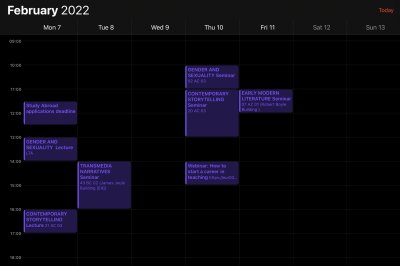
Lessons are divided into lectures and seminars. Lectures are usually one hour long, take place once a week, and are meant to give you the main information about the texts and theories. Seminars vary between 1-2 hours, also take place once a week and are more interactive since students discuss what they learned and apply their knowledge through close reading and other exercises.
Since you will be taking up to four modules per semester, this will add up to 8-10 contact hours per week. Do not be naive to believe this doesn’t mean there is work to be done, though! Students are expected to dedicate plenty of hours to independent study which might include reading the texts, doing research or other course-related activities.
However, the advantage of not having many fixed study hours means that you will have time to socialise, join societies, attend events or take a part-time job.
If you want to have an idea of what a week in the life of an English Lit/+Creative Writing student is like, look here.
What are the career options for an English Lit student?
I think one of the main reasons why people are hesitant to choose to this course is because they believe that career paths are limited to teaching which is completely untrue. In fact, English Literature students can work with so many different things that it can become a struggle to choose from.
The skills we acquire on this course make us suitable for corporate jobs like marketing, advertising, communications, PR and HR. There’s also journalism, publishing and proofreading. Then there are those who go into teaching which can apply to becoming Primary/Secondary/A Level teachers but also TEFL. Lastly, there is the option to become an academic researcher or creative writer.
Luana’s article first appeared on one of our student blogs. You can read more posts about student life at Surrey here
Discover more about our degree programmes in the School of Languages and Literature here.